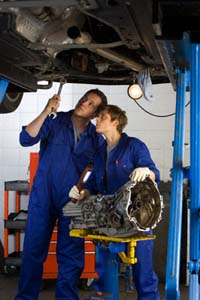
Research on Transmission Repair in Essex County NJ
Research on transmission repair in Essex County NJ
Updated November 04, 2016
The TOP 10 Transmission Shops in Essex County NJ
Fisher Auto Transmissions
- Fisher Auto Transmissions Profile
- Fisher Auto Transmissions Scorecard
- Fisher Auto Transmissions Reviews
- Fisher Auto Transmissions Photos
- Fisher Auto Transmissions Brands
- Fisher Auto Transmissions Articles
- Fisher Auto Transmissions Offers
Trans Shoppe
- Trans Shoppe Profile
- Trans Shoppe Scorecard
- Trans Shoppe Reviews
- Trans Shoppe Photos
- Trans Shoppe Brands
- Trans Shoppe Articles
- Trans Shoppe Offers
Earl Jones Transmissions LLC
- Earl Jones Transmissions LLC Profile
- Earl Jones Transmissions LLC Scorecard
- Earl Jones Transmissions LLC Reviews
- Earl Jones Transmissions LLC Photos
- Earl Jones Transmissions LLC Brands
- Earl Jones Transmissions LLC Articles
- Earl Jones Transmissions LLC Offers
Transmission Doctor
- Transmission Doctor Profile
- Transmission Doctor Scorecard
- Transmission Doctor Reviews
- Transmission Doctor Photos
- Transmission Doctor Brands
- Transmission Doctor Articles
- Transmission Doctor Offers
Samco Transmissions
- Samco Transmissions Profile
- Samco Transmissions Scorecard
- Samco Transmissions Reviews
- Samco Transmissions Photos
- Samco Transmissions Brands
- Samco Transmissions Articles
- Samco Transmissions Offers
Research on Transmission Repair in Essex County NJ
Common Transmission Repair Terms
Automatic Transmission - An automatic transmission shifts itself. A fluid coupling or torque converter instead of a manually operated clutch connects the transmission to the engine. Newer automatic transmission vehicles use electronic controls to regulate shifting and torque converter lockup.
Automatic Transmission Fluid (ATF) - A special kind of oil used in automatic transmissions. There are several types: Dexron II, Dexron III, Type F, Mercon, Mercon V, Chrysler 7176 and several varieties of Chrysler ATF-Plus. All of these automatic transmission fluid types are are friction-modified lubricants except Type F. Dexron II, Dexron III, Mercon and Mercon V have similar additives. You should only use the automatic transmission fluid specified by your vehicle manufacturer. If you use the wrong automatic transmission fluid, you can cause transmission problems. Read your user's manual if you do not know what type of ATF your transmission calls for. Some dipsticks list the type of automatic transmission fluid required. Some universal ATF fluids are available that meet requirements for many friction-modified vehicles. Newer automatic transmission fluid such as Dexron III and Mercon V last longer than past types of automatic transmission fluid, but they can still oxidize if your transmission runs too hot. Towing is especially hard on automatic transmission fluid unless your transmission is equipped with an oil cooler. It is recommended you change your older vehicle's transmission fluid around every 30,000 miles. Newer vehicles have different automatic transmission fluid change recommendations. See your owner's manual for details.
Clutch - A pedal or lever that engages or disengages the rotating shaft and driving mechanism in manual transmission vehicles.
Clutch Pedal - The pedal to the left of the brake pedal on manual transmission vehicles. Pushing down the clutch pedal enables the driver to change gears.
Differential - A special gearbox designed to spilt and deliver the torque into two outputs that turn at different speeds. Axel differentials are designed to split torque evenly; however, when a center differential is used between the front axles and rear axles in four-wheel-drive systems, it can allocate torque unevenly.
Drive Train - The system that connects the transmission to the drive axles.
Manual Transmission - A transmission in which the driver changes gears using a hand-operated gearshift and a foot-operated clutch. Also known as a "standard transmission".
Transmission - Transmission is the gearbox that multiplies engine torque through gear reduction and torque conversion. Most manual transmission vehicles have four or five speeds, with the highest gear being either a 1:1 drive ratio or an overdrive ratio that is less than 1:1. Automatic transmissions multiply the engine torque as it passes through the fluid coupling, also called the torque converter, then through different gear ratios. Vehicles with manual transmissions usually have better fuel economy than cars with automatic transmissions because of slippage that frequently occurs in automatic transmission torque converters. Manual transmissions are usually easy to maintain, except for the clutch, which can break or malfunction if adjusted incorrectly or treated roughly. With automatics, the leading mechanical problem is fluid breakdown that results from overheating. You can avoid transmission failure with transmission fluid changes and filter changes every 24,000 miles.